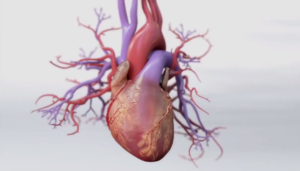What are your risk factors of having a heart attack or stroke in the next ten years? Keep in mind, the greater your risk, the greater your benefit when you modify your risk. Your preventive behavior is the best cure.
We all know that hypertension is a major risk factor for cardiovascular (heart) disease and stroke. I just can’t ignore that one out of every three deaths here in the United States is due to cardiovascular disease, and modified risk factors could have prevented at least 25% of these deaths.
But did you know that there are other risk factors besides high blood pressure that contribute to your increased risk of being disabled, losing your quality of life, or dying from a heart attack, coronary artery disease, or stroke? Some you cannot change because they are things like your age, race, and gender. There are others that are modifiable risk factors that put you at increased cardiovascular risk in addition to high blood pressure are lack of exercise, high salt diet, high total cholesterol, low HDL cholesterol, and smoking.
That is correct. There are risk factors that you can modify to decrease your cardiovascular risks. Risk factors are characteristics that increase your chances of something, such as having a disease or an event.
In 1948, researchers conducted a large study called the Framingham Study. They noticed that certain characteristics were responsible for cardiovascular disease. So they developed the first risk factor calculator.
Currently, there is a new version of that calculator that you can use if you are between the ages of 40 and 79. You can use the application version or the calculator version on the internet to calculate your risk of having a heart attack or stroke within the next ten years.
Why should you care about calculating your 10-year cardiovascular risk? The hypertension guidelines are based on this 10-year risk of cardiovascular disease. Blood pressure target goals are based on cardiovascular risk, and your health care provider uses this and other risk assessments to determine your treatment plan. You should be part of this conversation with shared decision-making, but you want to be an informed decision-maker.
http://www.cvriskcalculator.com/
Your risk may change for better or for worst over time based on the decisions you make about your health behaviors. You can use the cardiovascular risk calculator to help guide your decisions when talking with your doctor or health care provider about your health. For example, using this tool may support your decision to decline medication for blood pressure or cholesterol because your score is 3%, and your blood pressure is not severe. On the other hand, you may accept the prescriptions since your score is greater than 10%, although your blood pressure is just slightly above your target goal.
You should use the application or online tool to calculate your risk score so you can determine if you’re at a high risk of stroke, heart attack, or coronary heart disease. If your score is 10% or higher, you are at high risk. The good news is that there are things you can do to decrease your cardiovascular risk score. You can change your modifiable risk factors by reducing your blood pressure, total cholesterol, and increase your HDL.
Eating an apple a day may not keep the doctor away, but it may help you reduce and keep your cholesterol down. See the video above of Dr. Gregor with Nutrition Facts as he tells you more about apples and cholesterol.
https://nutritionfacts.org/video/coconut-oil-and-the-boost-in-hdl-good-cholesterol/HTTPS:
Dr. Grego,r with Nutrition Fact,s shares how to increase your HDL cholesterol in the video above. HDL cholesterol is the good cholesterol that. Cholesterol is fat that is made by your liver and is circulated as lipoprotein to make hormones and bile. LDL forms a fatty deposit called plaque and if too much cholesterol is circulated in your blood vessels for too long, it sticks to damaged blood vessels, which reduces blood flow in blood vessels on target organs and in blood vessels themselves. LDL cholesterol is known to build up in the blood vessles on your hear,t causing coronary artery disease. This blockage on the heart blood vessels may cause a heart attac,k and blocage on the brain may cause a stroke.

https://nutritionfacts.org/video/food-as-medicine/
Dr. Grego,r with Nutrition Fact,s shares how to increase your HDL cholesterol in the video above.